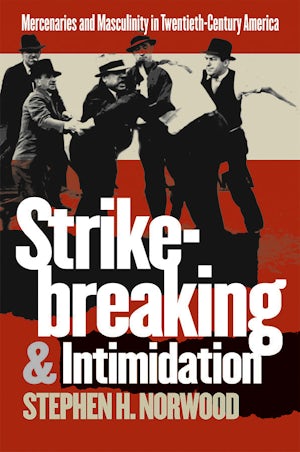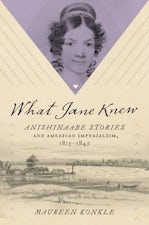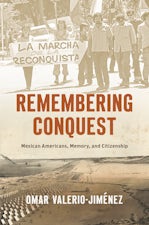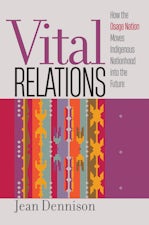Strikebreaking and Intimidation
Mercenaries and Masculinity in Twentieth-Century America
By Stephen H. Norwood
344 pp., 6.125 x 9.25, 26 illus., notes, bibl., index
-
Paperback ISBN: 978-0-8078-5373-3
Published: May 2002 -
E-book EPUB ISBN: 978-0-8078-6046-5
Published: April 2003 -
E-book PDF ISBN: 979-8-8908-7556-3
Published: April 2003
Buy this Book
- Paperback $42.50
- E-Book $29.99
For Professors:
Free E-Exam Copies
Norwood explores how the early twentieth-century crisis of masculinity shaped strikebreaking's appeal to elite youth and the media's romanticization of the strikebreaker as a new soldier of fortune. He examines how mining communities' perception of mercenaries as agents of a ribald, sexually unrestrained, new urban culture intensified labor conflict. The book traces the ways in which economic restructuring, as well as shifting attitudes toward masculinity and anger, transformed corporate anti-unionism from World War II to the present.
About the Author
Stephen H. Norwood, professor of history at the University of Oklahoma, is author of the award-winning Labor's Flaming Youth: Telephone Operators and Worker Militancy, 1878-1923.
For more information about Stephen H. Norwood, visit
the
Author
Page.
Reviews
"An important collection of essays that deserves the attention of labor historians."--Labor
"It is easy to become engaged with this book. Norwood's writing is colorful and immediate. . . . Importantly, Strike-breaking and Intimidation reminds us of things that should not be forgotten--the intensity and unrelenting nature of class struggle, the power of capital and the fortitude of working people and their families."--Journal of Gender Studies
"By enriching traditional labor history with more recent discourses on gender roles and identities in the American workplace, Norwood has put together a solid, well researched, and enjoyable book. . . . Its style and content make it an excellent reading for laymen wishing to familiarize themselves with the new labor history; Norwood's skillful treatment of the subject matter, theoretical consistency, and thorough research make it mandatory reading for all serious students of American labor history."--Journal of Mississippi History
"Both labor historians and those currently contemplating college-sports-related riots will find much to think about in Norwood's story."--Journal of American History
"Norwood offers a fine survey of American anti-unionism. His treatment of the bitter Chicago teamster and meatpacking strikes of 1904-1905 adds much to the existing literature on those events."--American Historical Review
"Strikebreaking and Intimidation is a wonderfully readable, evocative, and economical work of history. Focused and well-crafted, the book draws the reader quickly and engagingly into the central issues and cultural processes at stake."--Journal of Social History




